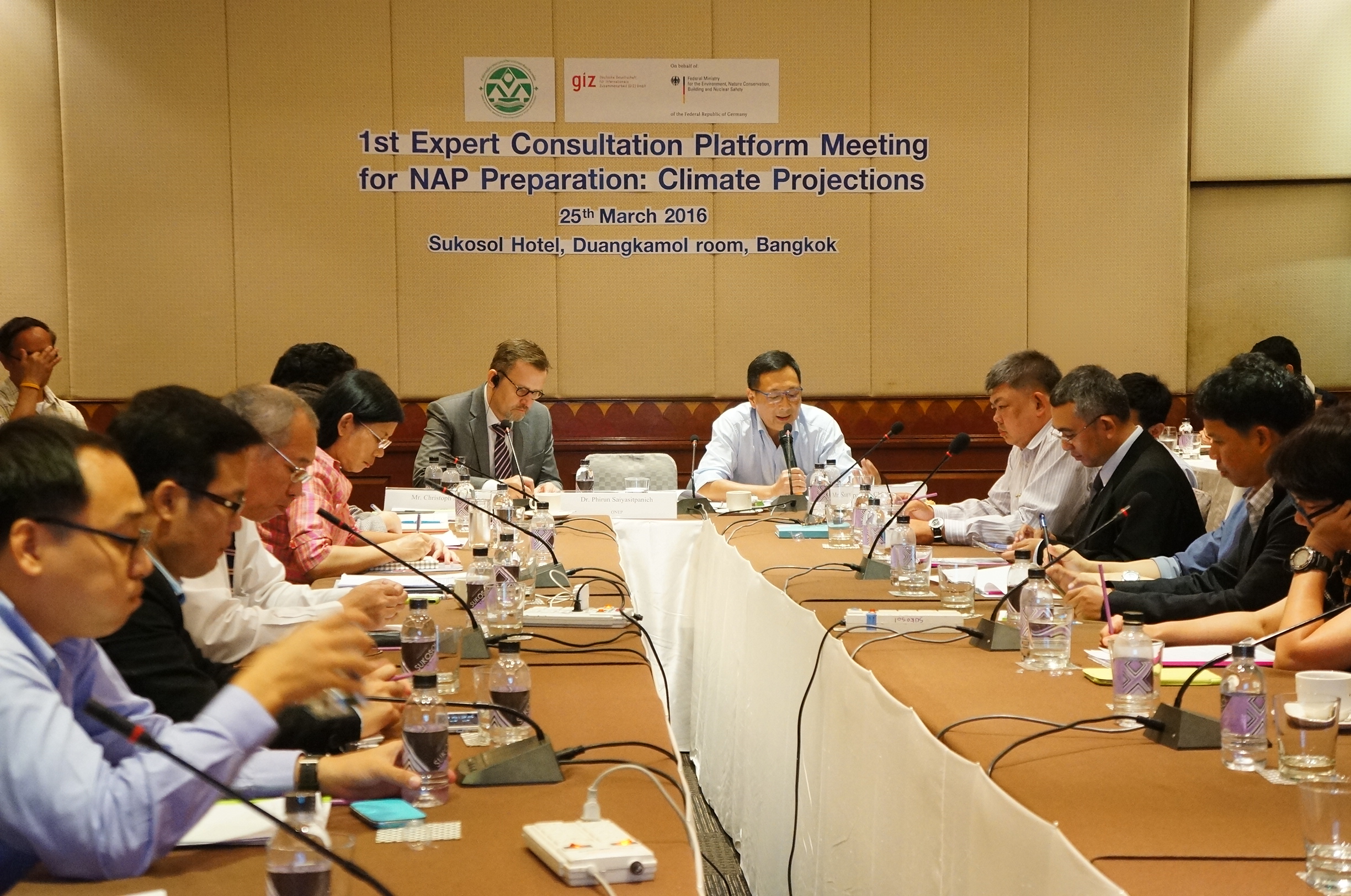Risk-based National Adaptation Planning (Risk NAP)

OBJECTIVE
- To inform decision makers and stakeholders on the national and subnational levels about expected climate changes and their projected impacts;
- To develop the NAP taking into account the results of the CCRA;
- To integrate the priorities of the CCRA-based NAP into sector policies/strategies and subnational planning instruments;
- To align financing instruments to support adaptation measures with the requirements of the Risk-NAP
PROJECT DESCRIPTION
In 2015, as a reaction to increasing loss and damages caused by climate change, Thailand has started to develop its National Adaptation Plan (NAP). Although adaptation is part of the Climate Change Master Plan as well as other national policies, specific information on climate related risks and options to adapt to these risks are still lacking. At the same time, insufficient integration of adaptation needs in subnational planning processes is being observed.
Hence, the project aims at supporting the development of a risk-based national adaptation plan (NAP) and integrating it into national and subnational planning processes, in order to strengthen Thailand’s capacity to adapt to the risks of climate change.
The risk-based National Adaptation Plan project is financed by the German International Climate Initiative (IKI) of the German Ministry for Environment, Nature protection, Building and Nuclear Safety (BMUB), and will support the Thai Ministry of Natural Resources and the Environment (MoNRE) and its Office of Natural Resources and Environmental Policy and Planning (ONEP), as well as the Department of Public Works and Town & Country Planning (DPT) of the Thai Ministry of Interior (MoI).
SUCCESS STORIES
First Expert Consultation Platform Meeting for NAP Preparation
 What are gaps and ways forward in producing future climate projections in Thailand? What are challenges in using future climate data for risk and vulnerability assessments in Thailand as well as interpreting and contextualizing it at the sub-national level?
What are gaps and ways forward in producing future climate projections in Thailand? What are challenges in using future climate data for risk and vulnerability assessments in Thailand as well as interpreting and contextualizing it at the sub-national level?
These and other similar issues where discussed on March 25th, 2016 during the first Expert Consultation Platform for NAP preparation organized by the Office of Natural Resources and Environmental Policy and Planning (ONEP) and supported by GIZ in the frame of the Risk-based National Adaptation Plan (Risk-NAP) project.
Various climate (model) experts and researchers have been invited to share their experience and expertise on existing climate projections and climate modelling in Thailand. This first NAP Expert Platform meeting kicked-off a series of planned conferences and meetings for 2016, each with a different thematic focus around climate change adaptation in Thailand. A major objective is to enhance the inclusiveness and multi-stakeholder based approach of the NAP process, bridging the science and policymaker communities.
Risk-based Climate Change Impact Chains: an innovative approach to understand climate change risks
 “Climate change is fun!”- This is how the Introductory Workshop on Climate Change Impact Chains was kicked off on June 15th, 2016 as participants were asked to describe in one word what climate change means to them.
“Climate change is fun!”- This is how the Introductory Workshop on Climate Change Impact Chains was kicked off on June 15th, 2016 as participants were asked to describe in one word what climate change means to them.
And why not trying to see the bright side? After all there is enough alarmism and threatening projections around the warming of our atmosphere. This and other half-provoking, half-humorous statements (“Climate change is a hot issue!”) set the tone of this workshop series: of course, climate change poses significant risks to Thailand, but the collective will to increase the country’s capacities and skills to cope with its effects has maybe never been felt so strongly than at these two in-depth workshops that focused on the cause-and-effect relationships of climate change impacts in Thailand’s key sectors.
Impact chains offer the opportunity to develop in a participatory process a deeper understanding of key climate change impacts and risk factors in a given system or sector. Building on Thailand’s first nation-wide Vulnerability Assessment study conducted in 2015, the elaboration of national, sector-based impact chains is part of Thailand’s NAP process, and specifically aimed at increasing the understanding of climate change risks and impacts as well as highlighting interlinkages across sectors to ultimately serve as a basis for the identification of national adaptation priorities and options.
COUNTRY
Thailand
DURATION
Aug 2015 - May 2019
Commission Agency
BMUV

